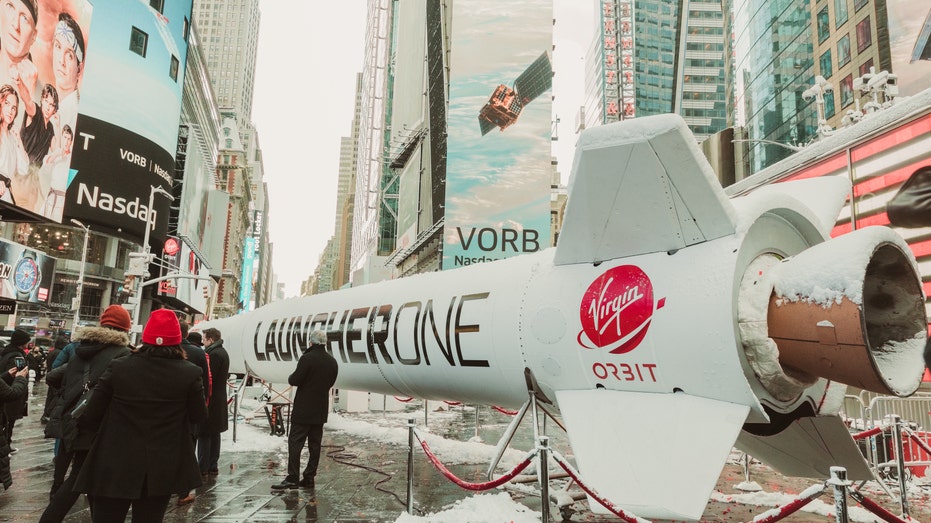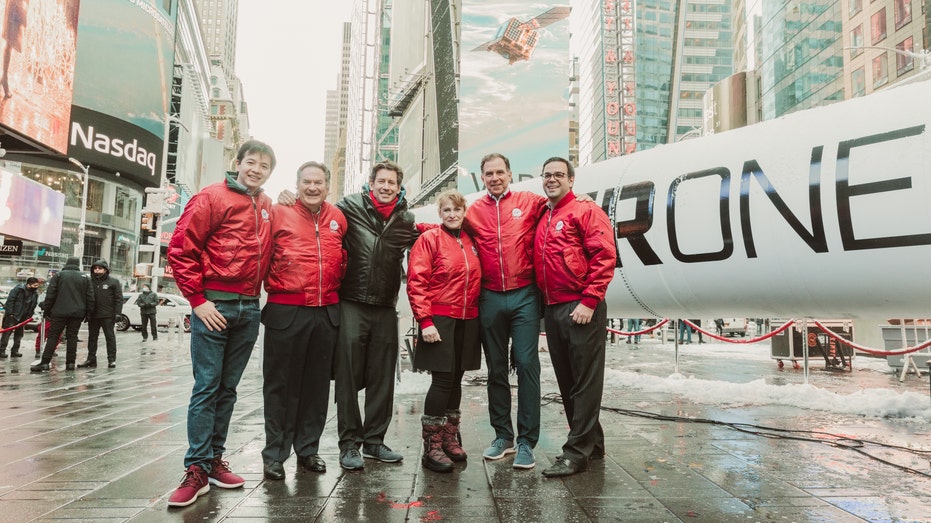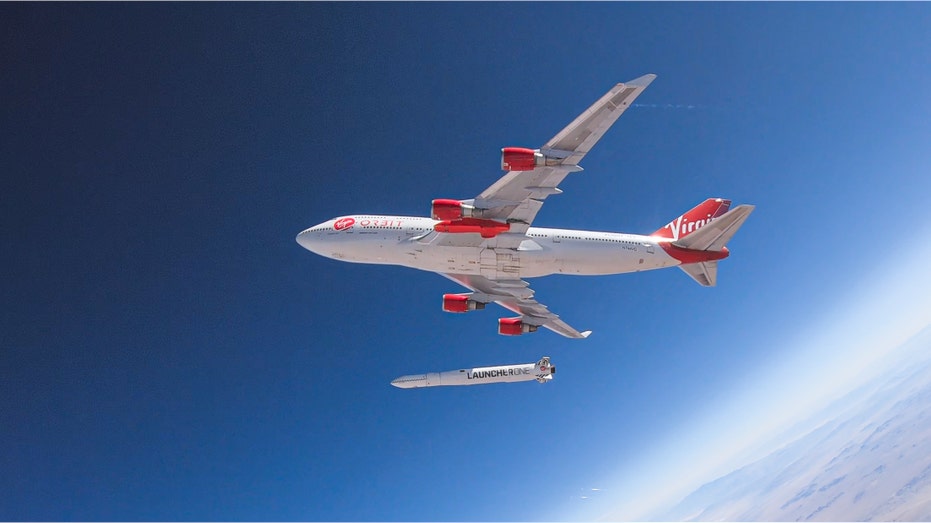Richard Branson’s Virgin Orbit adds to space investing liftoff
Virgin Orbit is trading under the ticker symbol VORB
Billionaire Richard Branson's Virgin Orbit is celebrating its business combination with special purpose acquisition company NextGen Acquisition Corp. II, which gives the company a market capitalization of approximately $3 billion.
Virgin Orbit CEO Dan Hart tells FOX Business that the merger gives the company plenty of runway to execute its future growth plans.
"What sets us apart, in part, is that we actually have pulled ourselves across from an aspirational company into an operational company where we are putting customers into space, we're partnering with our customers as well and their services," Hart said. "So there's just a lot going on and a bright future over the next few months as we ramp up."
| Ticker | Security | Last | Change | Change % |
|---|---|---|---|---|
| VORB | NO DATA AVAILABLE | - | - | - |
| SPCE | VIRGIN GALACTIC HOLDINGS INC. | 2.53 | +0.18 | +7.66% |
Shares of Virgin Orbit, which began trading under the ticker symbol VORB on Dec. 30, soared over 20% on Friday. Branson's other space company, Virgin Galactic, also climbed during Friday's trading session.

(Courtesy: Virgin Orbit)
ELON MUSK'S SPACEX RAISES OVER $337M IN FRESH FUNDING
The company raised $228 million in gross proceeds through the transaction, including $68 million in trust and a $160 million private investment in public equity (PIPE) from investors including Boeing, AE Industrial Partners, Virgin Group, Mubadala Investment Company and NextGen's sponsor – far less than the projected $483 million when the merger was first announced.

(Courtesy: Virgin Orbit)
Virgin Orbit, which has successfully launched 19 satellites to date, serves customers across the civil, commercial, international and national security segments and is planning for a total of six launches in 2022. Its upcoming Above the Clouds mission, which will carry satellites from the U.S. Department of Defense, SatRevolution and Spire Global, will open its launch window no earlier than Jan. 12.

Virgin Orbit uses a technique called air launch, in which its 70-foot-long, 57,000-pound LauncherOne rocket is released at an altitude of 35,000 feet from under the wing of a modified 747-400 jet aircraft, dubbed Cosmic Girl, rather than from a tradi (Courtesy: Virgin Orbit)
Virgin Orbit uses a technique called air launch, in which its 70-foot-long, 57,000-pound LauncherOne rocket is released at an altitude of 35,000 feet from under the wing of a modified 747-400 jet, dubbed Cosmic Girl, rather than from a traditional launch pad on the ground. After a four-second freefall, LauncherOne's first stage engine ignites, accelerating the rocket to approximately 8,000 miles per hour. From there, the second stage engine kicks in, taking LauncherOne to a maximum speed of 17,500 miles per hour.
In addition to improving the payload capacity of the rocket, the technique allows LauncherOne to fly on short notice from a wide variety of locations. LauncherOne, which costs an average of $12 million per flight or $40,000 per kilogram, can carry satellite payloads weighing between 300 and 500 kilograms.
"We have created a new technology that's differentiated," Hart says. "Using an aircraft to take your first leg of your journey to space has environmental benefits in terms of not polluting the surrounding area. It has economic benefits in that the airplane does a lot of the work for the rocket, makes a simpler and less expensive rocket, and it has incredible flexibility that is important as countries build their space programs."
GET FOX BUSINESS ON THE GO BY CLICKING HERE
Beyond the Above the Clouds mission, Virgin Orbit has signed new agreements for more than 30 launches with customers including Japan's All Nippon Airways, HyperSat, Horizon Technologies, SatRevolution and Arqit.
ANA Holdings will create a new spaceport in Japan's Oita region by the end of 2022, pending regulatory approval, and has agreed to procure 20 LauncherOne flights. Virgin Orbit has also established agreements to bring LauncherOne to Brazil and the United Kingdom, where it will fly out of Spaceport Cornwall in 2022.
In an investor presentation in October, Virgin Orbit estimated it will bring in $70 million in revenue by the end of 2022, with more than 50% expected to come from active contracts. The company has roughly $300 million in active contracts, $1.3 billion in active proposals and $2.3 billion in other identified opportunities. Virgin Orbit expects to reach profitability in 2024.
CLICK HERE TO READ MORE ON FOX BUSINESS
As the commercial space industry ramps up, Hart is urging organizations like the United Nations to contribute funding for satellite infrastructure improvements and to create what he refers to as space traffic control.
"If you compare the amount of massive satellites that are flying to the amount of airplanes to fly in any given day, it's much less," Hart notes. "But the difference is the technology that's been applied, the international investment, collaboration and cooperation on norms of behavior and how we fly hasn't happened to the extent in space as we have in aircraft, and we really need to move that forward."
The call comes as China recently warned of two near-misses between its space station and Starlink satellites from Elon Musk's SpaceX. SpaceX has launched over 1,000 Starlink satellites to date, with the goal of providing internet service worldwide. Starlink has more than 145,000 users in 25 countries worldwide.





















